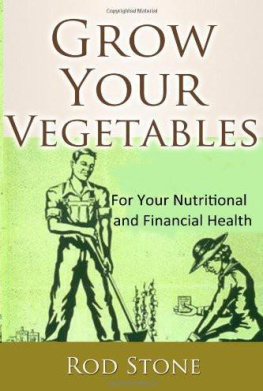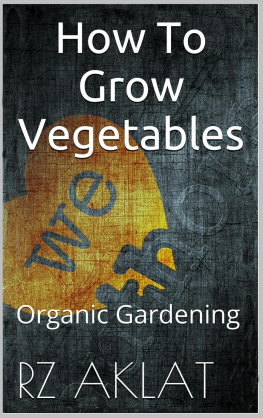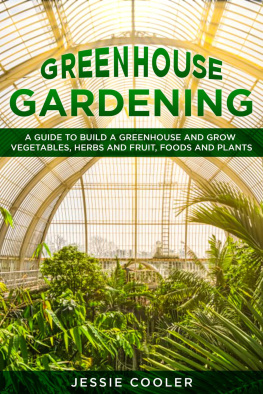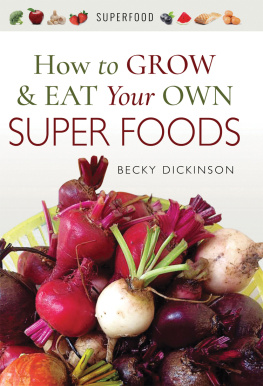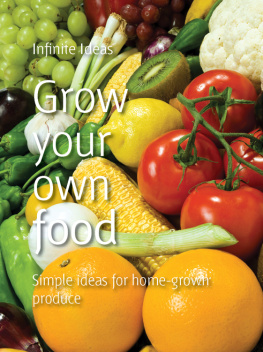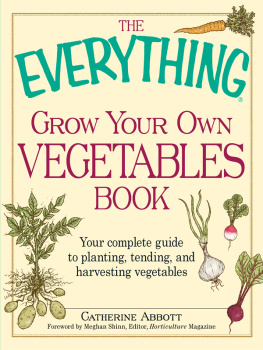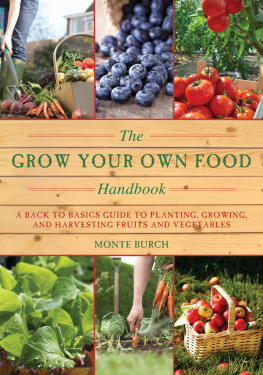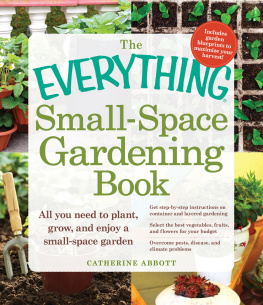Grow Your Vegetables
Rod Stone
Copyright 2013 Rod Stone
All rights reserved.
No part of this publication may be reproduced, distributed, or transmitted in any form or by any means, including photocopying, recording, or other electronic or mechanical methods, without the prior written permission of the publisher, except in the case of brief quotations embodied in critical reviews and certain other noncommercial uses permitted by copyright law. For permission requests, write to the publisher.
Published By: Rod Stone Group
Contact: rodsmedia@comcast.net
Grow Your Vegetables
For Your Nutritional
and Financial Health
by Rod Stone
Copyright Notice
This book is 2013 by Rod Stone Group. All Rights Reserved. Unauthorized Reproduction is Strictly Prohibited.
The information contained in this publication is for general information purposes only.
We have attempted to be as accurate as possible in the information that we have provide from this and other sources. We make no representations or warranties of any kind about the completeness, accuracy or reliability of this work.
Rod Stone Group focuses on providing information on health, nutrition, and many other subjects to improve your life.
We began writing articles on various topics in the mid 90s. In 2004 we started full time working with people and providing information to assist with health and nutrition. In 2008 we started to become involved with the importance of specialized high intensity workouts. In 2011 we became involved in Universal Energy and related fields.
We have written dozens of books and hundreds of articles. We also have hundreds of websites to help people improve their life.
Through our media store and other sites we provide thousands of products for your benefit.
We believe that information is todays currency.
Foreword
We feel strongly that everyone should try and find ways to do as much of their vegetable growing as possible. This will provide them with the quickest leaks to healthy eating.
The chapter on the Importance of Vegetable Gardening provides input from a number of experts in the field.
The chapter on the Garden Organically is taken from The Essential Guide to Organic Gardening and Organic Gardening for Beginners .
The chapter Plan Your Garden was taken from Garden steps; a manual for the amateur in vegetable gardening by Ernest Cobb.
The chapter Fall and Winter Preparations was taken from Garden steps; a manual for the amateur in vegetable gardening by Ernest Cobb.
The chapter Hot Beds, Cod Frame and Green Houses is input from a number of experts on gardening.
The chapter on Plant Tips was taken from Hints on Vegetable Gardening by Mae Savell Croy.
We hope you are able to take the information and create nutritious produce for you and your family.
The Importance of Vegetable Gardening
THE food we eat, the clothes we wear, and the house which shelters us, are three great necessities of life. Of these three necessities, food is by far the most important. The ordinary family plans to spend a large part of the daily wages for food. If times are bad, we can live in smaller houses and be very comfortable. We can wear the same clothes twice as long as we expected to, and still not suffer from the cold. But with food it is very different. We must constantly provide ourselves with a nourishing diet, or our strength fails, health gives way, and great suffering is the final result. For a useful and happy existence, nourishing food is of the first importance.
We have seen in the past number of years a change to the eating of not only Americans, but people around the world. There is more and more push to processed foods, factory farms, and fast food which many of us believe are not healthy.
During the period when the country was young there was plenty of food. The vast fields of the South and West were covered by the richest earth, which rewarded a small effort with a wonderful harvest. On the plains beyond the Mississippi, millions of cattle and sheep wandered and fed at will, providing us with the best of meat which cost little but the effort to bring it to market.
At first one might suppose that this left a poor prospect for our future food supply. It does not; the prospect is as good as ever. It means that the whole plan of the family in regard to its food supply must be changed. What Mother Nature freely provided, almost of herself, she will continue to provide as bountifully as before, but now she must be helped in the work. Hereafter man must study the problem of his food supply and must stand ready to give the aid that Nature needs to insure an abundance of nutritious food.
Even in our largest cities many acres of ground have been found available for gardens, and thousands, who formerly longed for something interesting to do through the idle hours of long summer days, have discovered the delight of planting seeds and sharing in the miracle of the growing and ripening crops. They are also learning that health and vigor come through hours of happy labor in the garden. Every man who makes two blades grow where one grew before helps reduce the high cost of food, while at the same time provides more nutritious food. There is no other sure way. In the small gardens, which we now realize are, after all, available to all who really want them, enough can be grown to help more and more people eat nutritious food.
"It is only when you start to garden - probably after 50 - that you realize something important happens every day."
- Geoffrey B. Charlesworth, "The Opinionated Gardener," 1988.
Bob Hatton a Master Gardener and volunteer at the Amarillo Botanical Gardens says, Perhaps this is truer today than when it was published. In our digital world where it would seem that many cannot sit, walk or drive without surfing, talking or texting, we are stressed unlike any time in the past. And while the author was talking about important things happening in the garden, it is also true of our shrunken world, which we constantly strive to stay on top of with our modern digital devices.
But I sincerely hope that most people don't have to wait until "after 50" to start to garden. Gardening is not just about digging in the dirt. It is about renewal, rejuvenation and reward.
In spring, after a seemingly long, dreary winter, the first shoots of spring bulbs provide excitement and set up anticipation. In spring, nature renews itself. For those of us who garden, this also rejuvenates and energizes us. We have forgotten last year's disappointments and begin a new season full of expectations.
In the fall, even the most dedicated gardeners are weary of the heat and the general care required to have had nice gardens all summer. But the fall also provides a period of rejuvenation as the cooler weather arrives. The roses go through another flush of bloom and mums, asters and others as well as summer annuals bloom and flourish until the first killing frost. We look back on successes and failures, remember garden tours and gardening friendships and await the relative inactivity of winter.
The rewards from year-round gardening activities abound.
From simple enjoyment of relaxing in gardens to gardening with friends, children and grandchildren to providing nutritious, delicious homegrown food, and the associated exercise and education provided by all such activities, gardening's benefits fit everyone. Good gardening practices provide stewardship and sustainability that are required for future generations.
As we close out one gardening season in the fall, we also are preparing optimistically for next year's season. I encourage everyone to consider gardening, even if on a small scale, to reap the many benefits it brings to one's life.
We see the benefits to our body and mind as Bob Hatton has indicated. But will we see benefits to our nutritional and financial health?
Next page
